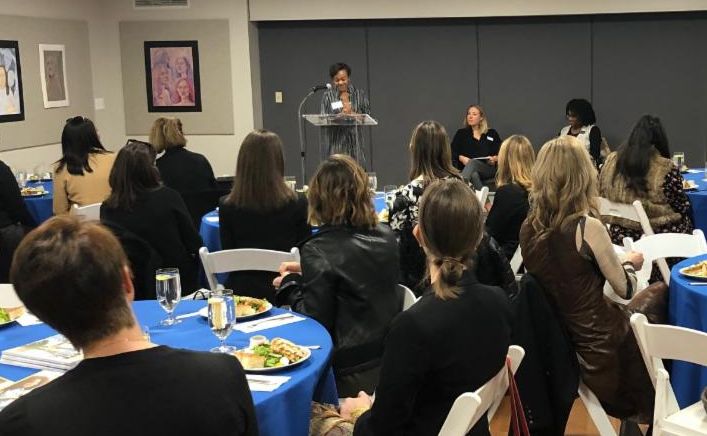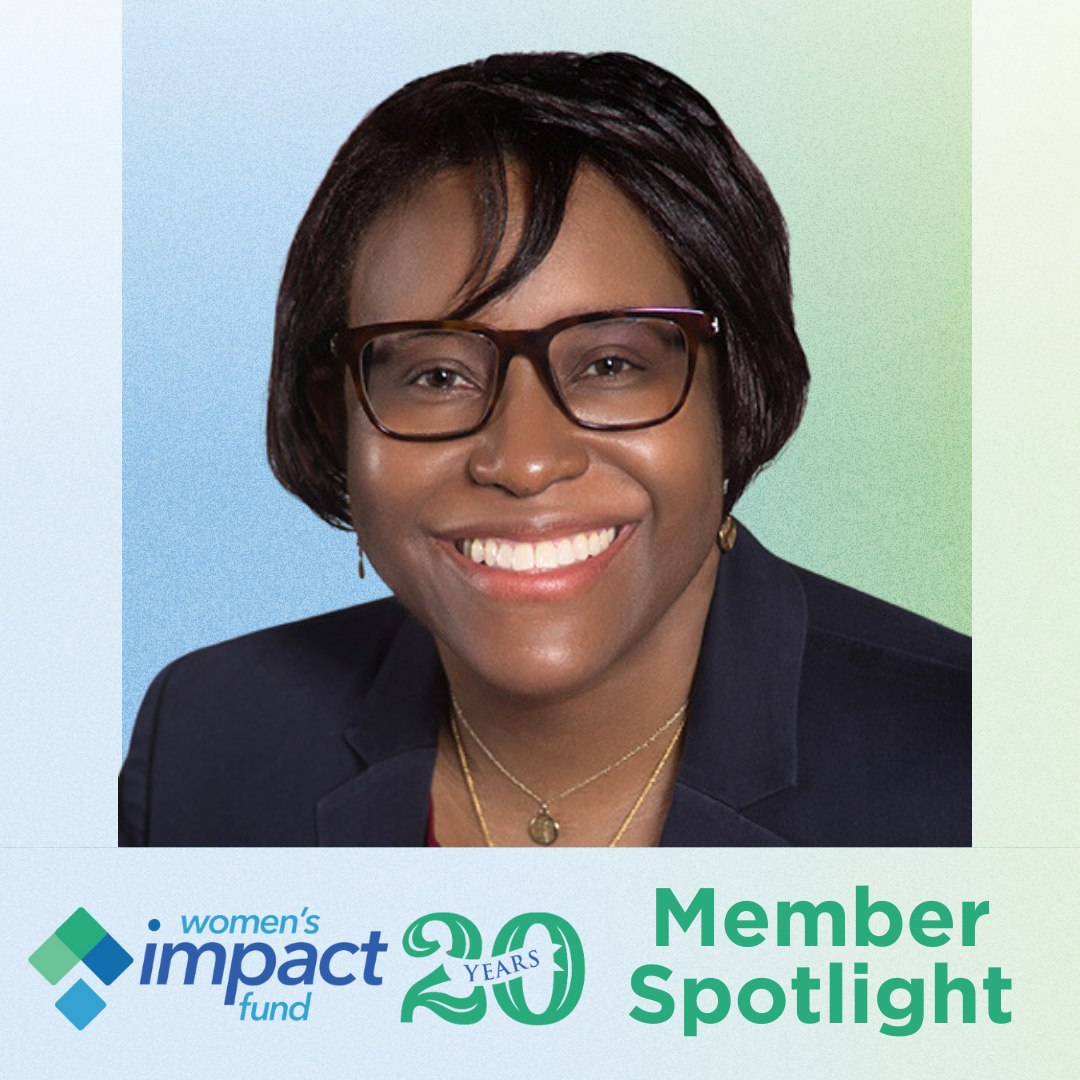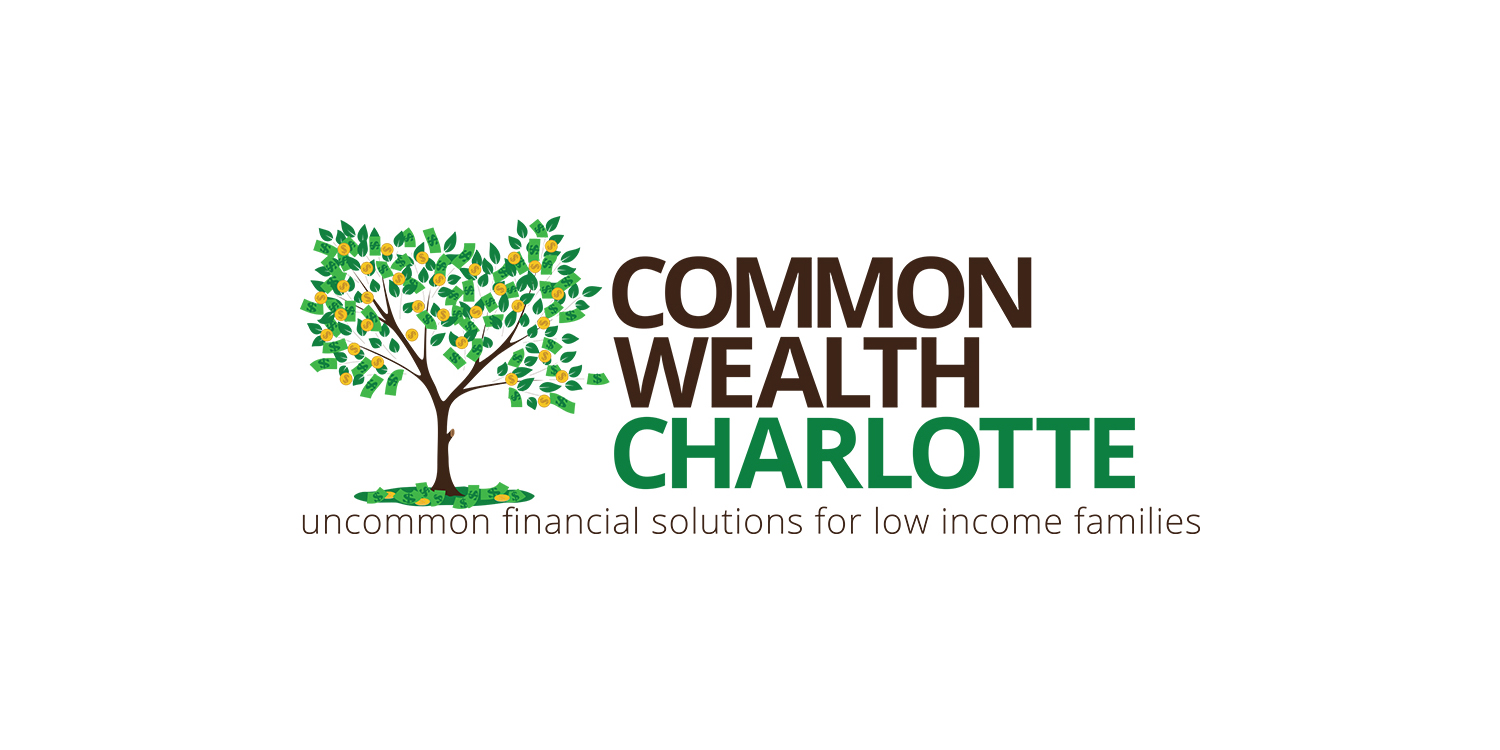
How can parental expectations and socialization influence a child’s educational success? On January 30 at the Mint Museum Randolph, WIF explored this question in the third segment of its five-part Lunch & Learn series. Dr. Bryanna Campbell, a young adult psychologist at Southeast Psych, and Molly Shaw, president of Communities in Schools, shed light on the relationship between a child’s academic achievement and their mental health and socialization. Their discussion focused on how hyper-parenting and technology can negatively affect children and ways parents can address these ill effects. According to Dr. Campbell, “What happens before school is just as important as what happens during school.”

In her practice, Dr. Campbell sees many children with anxiety and depression that stem from parents who emphasize perfection and achievement. At the Lunch & Learn, she and Molly Shaw addressed these factors and ways parents can support their children. Children who feel they are underperforming expectations may experience depression, low energy, detachment, and poor academic performance. Furthermore, they may experience extreme guilt, especially those whose parents have made sacrifices to provide their educational opportunities. Dr. Campbell noted that these feelings often lead children to isolate themselves from their friends, teachers, and parents. Parents need to become sensitive to isolating behavior and let their children know it is OK not to be OK all of the time. According to Dr. Campbell, children need parents to actively create safe spaces where children can communicate with them – and ask for help.
Being a kid has never been easy, but the proliferation of technology and social media have made it more difficult and, in many cases, very painful. Dr. Campbell cited a recent CMS study in which a quarter of middle and school students have felt hopeless, and one in five have contemplated suicide. According to Dr. Campbell, there is a direct link between social media, poor mental health, and underdeveloped social skills. As children engage more deeply in social media, their genuine social interactions decrease. On a day-to-day basis, it is easy for children to avoid interactions that make them uncomfortable. As a result, Dr. Campbell sees many children with arrested development. Many adolescents derive self-esteem from their “likes” on TikTok and Instagram. Since social media relationships are based on what is going well, when things go badly adolescents may not have social relationships deep enough to get them through periods of doubt and isolation. Dr. Campbell recommends that parents work diligently to teach social skills. Be aware of social media behavior and look for signs of isolation, she advises. Check-in frequently with children. Simply ask, “How are you?” Pay attention to what isn’t being said.
Finally, Dr. Campbell is dedicated to breaking down social stigmas and financial barriers that limit the ability of racial and ethnic minorities to obtain access to therapy, and she is concerned by the lack of mental health services available in the community. When asked how we should treat kids who are strangers to us, she encouraged us to act as part of a global community. Challenge all children with kindness and empathy: “I see you and you are important.”
Please read ‘State of Our Children’ annual report produced by the Council for Children’s Rights for even more details.






Leave a Reply